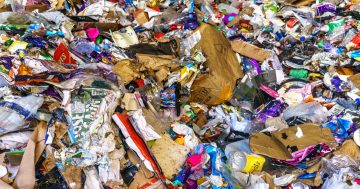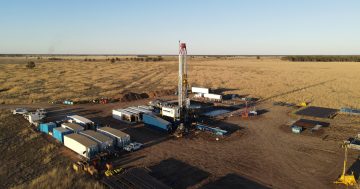
“Let the Great Barrier Reef serve as a living testament to the circularity of nature and the benefits, where nothing goes to waste”: Smart Precinct NQ CEO Cassandra Cazzulino. Photo: iStock/Shanenk.
As part of the Palasczuk government’s effort to build Queensland’s circular economy, the not-for-profit Smart Precinct NQ has been announced as a support hub for helping local businesses transition towards a zero-waste society. The Townsville-based organisation will join two other regional centres in the state’s new $4 million pilot program tasked with helping industry-driven research get the private sector onboard.
Smart Precinct NQ was established as a non-profit in 2019 with the help of organisations such as the North Queensland Regional Operation of Councils and James Cook University to provide support and advice for the region’s growing business community.
In 2022, the environment ministers of Australia agreed to collaborate with the private sphere on eliminating waste and pollution, maximising the utility of materials, and pushing markets to create a functioning circular economy by 2030. Estimates show that establishing this nationally could provide $1.86 trillion over two decades as it reduces carbon emissions.
“We simply have to do a better job of conserving our precious resources and reducing waste to landfill,” Minister for the Environment and the Great Barrier Reef Leanne Linard said.
“Recycling certainly has its place, but we encourage industry to also think beyond recycling and focus more on the circular economy principles of designing out waste throughout production and a product’s usable life.
“On any given day, particularly in major population centres, you will see tonnes of waste sent to landfill centres – multiply this by our country’s population and the coming seven years to 2030 and it can be seen how imperative it is that we act now to reach this goal.”
The United Nations Conference on Trade and Development (UNCTAD) defines a circular economy as a system that gives incentives to markets for reusing products and investing them back into the economy, rather than turning them into waste and exploiting new materials.
Queensland’s Circular Economy (Industry-Research) Program is already supporting Mackay’s Resource Centre of Excellence and Toowoomba’s Agribusiness Connect, which are helping businesses in their regions move away from the linear ‘take-make-waste’ model.
If these hubs and Townsville’s Smart Precinct NQ can successfully embed these economic principles within local business operations, the program will be expanded to other locations throughout the state.
“I am keen to see Townsville and North Queensland at the forefront of this economic benefit,” Member for Townsville Scott Stewart said. “Embracing a circular economy isn’t just good for the environment, it’s good for business. For every one job in landfill, there are three jobs in recycling and remanufacturing.”
According to the state government’s Waste Management and Resource Recovery Strategy, over the past 10 years Queensland’s recycling rate has remained steady but landfill has increased by around 19 per cent more than population growth. Between 2017-18 the state recycled 4.9 million tonnes or 45 per cent of the total 11 million tonnes generated, which is well below the highest rates of other states and the national average.
The growth in waste is partially due to increased consumption, interstate waste transported into the state for disposal thanks to the low landfill gate prices, and the non-existence of a waste levy.
On top of this, each year Queensland’s local governments spend $18 million to remove litter and illegally dumped waste. Partly to blame is China’s ban on the import of recycled material with higher contamination levels, which has impacted the commercial viability of the state’s kerbside recycling.
Currently the state government is collaborating with the rest of the Commonwealth to update the National Waste Policy, so the country is more resilient to international market fluctuations and has the capability to improve waste recovery.




